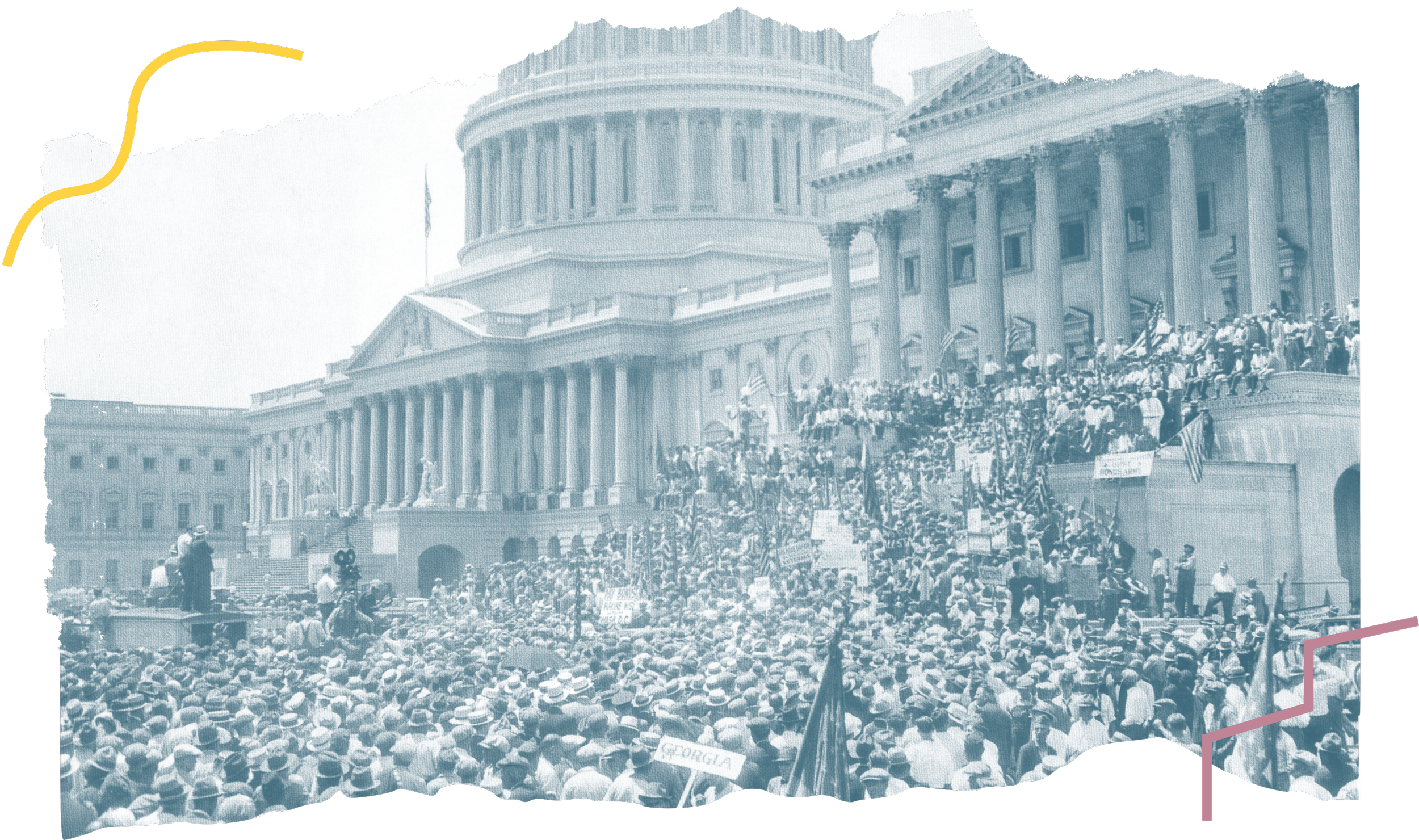Monograph
for 2026 Election Cycle
The Bridge Points Project: A New Era of Political Advocacy
Introduction: A New Approach to Political Influence
The Bridge Points Project aims to revolutionize political advocacy by using bipartisan ballot measures to overcome legislative gridlock on social issues, breaking through partisan deadlock that has stalled progress across the board.
Unlike traditional advocacy organizations that have become extensions of political parties, this Project prioritizes coalition-building and direct engagement with voters to drive meaningful policy changes.
The Problem: A Polarized Political Landscape
For a century, advocacy groups positioned themselves as intermediaries capable of building consensus across party lines. However, modern political organizations have largely abandoned this role in favor of partisan mobilization, leading to a vacuum in centrist advocacy. The consequences of this shift include:
Partisan Entrenchment: Advocacy groups such as Moms Demand Action, the NAACP, and Human Rights Campaign (HRC) have aligned exclusively with the Democratic Party, mirroring the NRA and Evangelical coalitions' allegiance to Republicans.
Policy Stagnation: Without intermediaries capable of bridging ideological divides, legislative progress has ground to a halt.
Ineffective Donor Investments: Despite significant financial contributions from donors, tangible policy advancements remain elusive due to the cyclical nature of partisan electoral battles and intra-party fighting.
The Bridge Points Solution: Bipartisanship and Direct Democracy
The Bridge Points Project proposes a strategic alternative modeled after the most effective political actors—corporations. By utilizing bipartisan ballot measures, this Project aims to create a sustainable pathway to political influence, avoiding the pitfalls of conventional interest group partisanship.
Corporate-Inspired Political Influence
Corporations have long excelled at maintaining political influence by employing:
Bipartisan Contributions: Companies such as Amazon, Microsoft, and Goldman Sachs contribute to both major parties to ensure continued access and influence.
Dual-Sided Lobbying: By lobbying across the political spectrum, corporations ensure their policy priorities remain at the forefront regardless of the party in power.
Ballot Measures: When faced with unfavorable legislative conditions, corporations pivot to ballot initiatives to secure their policy goals directly from voters.
The Bridge Points Project applies these corporate strategies to advance social progress by engaging both sides of the political aisle, fostering consensus, and utilizing ballot measures to bypass legislative gridlock.
Historical Precedents: The Power of Bipartisan Coalition-Building
Successful social movements have historically relied on bipartisan coalition-building and direct democracy rather than purely partisan mobilization. Examples include:
The Brady Handgun Violence Prevention Act (1993): Passed with support from both Democrats and Republicans, catalyzed by advocacy from President Ronald Reagan and bipartisan lobbying efforts.
The Martin Luther King Jr. Day Holiday (1983): Established as a federal holiday with bipartisan support, championed by Coretta Scott King, civil rights leaders, and a broad coalition of lawmakers, and signed into law by President Ronald Reagan after years of advocacy and public pressure.
The Defeat of the Briggs Initiative (1978): A coalition that included Governor Ronald Reagan, Harvey Milk, and Silicon Valley business leaders successfully opposed a discriminatory anti-LGBTQ initiative.
The Civil Rights Act (1964): A landmark achievement made possible through strategic bipartisan lobbying, particularly from figures such as Rev. Dr. Martin Luther King Jr. and Senate Minority Leader Everett Dirksen (R-IL).
Women’s Suffrage (1920): The 19th Amendment was ratified through a coalition of progressive Democrats, Republican reformers, and grassroots activists who framed voting rights as a moral and civic duty.
Strategic Implementation
Targeting Key States for Impact
The Bridge Points Project prioritizes states where ballot measures have the highest likelihood of success, including:
Ohio: Ban bump stocks, addressing commonsense gun safety in a 2nd Amendment stronghold.
Oklahoma: Establish Greenwood Day, a school-year state holiday to honor the victims of government tyranny in Tulsa, promoting racial reconciliation in the Bible Belt.
Montana: Codify gay marriage, securing LGBTQ rights in an independent, rural state.
These states serve as test cases for the initiative's approach, demonstrating that even in conservative regions, progressive policies can gain widespread support when framed effectively.
Examples of recent successful bipartisan ballot measures in conservative states include:
Abortion Protections: Kansas, Kentucky, Ohio, MT & MO voters rejected restrictive abortion measures post-Dobbs.
Marijuana Legalization: South Dakota passed a legalization measure in 2020 despite conservative opposition.
Building a Broad Coalition
By focusing on universally resonant issues—such as economic fairness and individual freedoms—the Bridge Points Project seeks to shift the political landscape from ideological battles to shared-value governance.
Our coalition will include:
Progressives
Blue-Dog Democrats
Independents & Libertarians
Fiscally Conservative, Socially Moderate Republicans
MAGA Populists
A New Model for Donor Engagement
For donors seeking to invest in real, measurable change rather than perpetual partisan warfare, the Bridge Points Project offers a novel investment model:
Tangible Policy Wins: Donors will receive clear metrics on the impact of their contributions, with a focus on policy enactment rather than electoral victories.
Cross-Partisan Collaboration: Contributions fund narrowly-defined initiatives that engage both conservative and liberal constituencies, ensuring durable, widely accepted policy solutions.
Reduction of Polarization: By reframing social issues as economic or governance concerns, the project fosters a political culture rooted in consensus rather than division.
Conclusion: A Call to Action for Visionary Leadership
The Bridge Points Project represents a paradigm shift in political advocacy—one that moves beyond partisan affiliations to prioritize practical, consensus-driven solutions.
For donors, this initiative offers an opportunity to support a new model of governance that aligns with corporate best practices: leveraging bipartisan influence, utilizing data-driven decision-making, and fostering sustainable, long-term policy impact.
We invite forward-thinking donors and disrupters to join this Project and play a pivotal role in reshaping the future of American politics. Together, we can build the middle ground that has long been abandoned and usher in a new era of political progress and stability.

